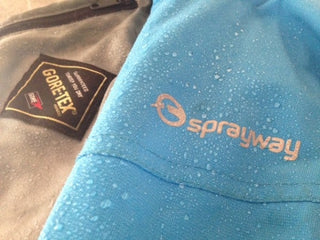Hydrostatic Head (HH) is a way of measuring how waterproof a piece of fabric is. It's usually used in marketing for tents and waterproof jackets, but some bag-makers use it. We don't, largely because it's not helpful.
The manufacturer will take a clear tube and clamp their material over the bottom end. They will then fill the tube slowly with water and watch to see how high the column of water can get before the material lets drips through.
An Hydrostatic head rating of 2000mm means that the column of water was 2 metres (2000mm) tall before the material leaked.
In real-world terms, where you have wind and gravity pushing rain into a tent fabric you will need a measurement of around 1000mm to resist light showers.
Heavy rain and driving wind will create more pressure on the fabric and require a higher number of around 2000mm.
Anything above this (some tents have a hydrostatic head rating up to 10000mm) and your tent material should survive against water being pushed through by something physical, like a person or vegetation rubbing on it in the wind.
A ground sheet, where the pressure of you walking/sitting/laying is likely to be quite great, will ideally have a HH rating of 5000mm+. It should also ideally curve up at the edges to keep rain water from seeping over the top of it.
Canvas tents arent tested for hydrostatic head, they work differently, using treatments and surface tension to achieve waterproofing.
Don’t compare HH measurements for tents against those used for clothing, since clothing will rub on itself, your backpack and rough surfaces and therefore require a higher rating to resist that pressure. The shoulders, back and any areas where things rub will need to be sufficiently rugged or waterproof to stop the pressure of your pack pushing water through, but you only need a couple of 1000mm in the wider areas of your chest, arms and belly to stop driving rain penetrating, whilst allowing some breathability. A higher HH mm rating doesn’t always mean a better garment, especially for active wear like cycling, running or climbing apparel. Breathability is key for active wear, and waterproofing is always a compromise with breathability.

